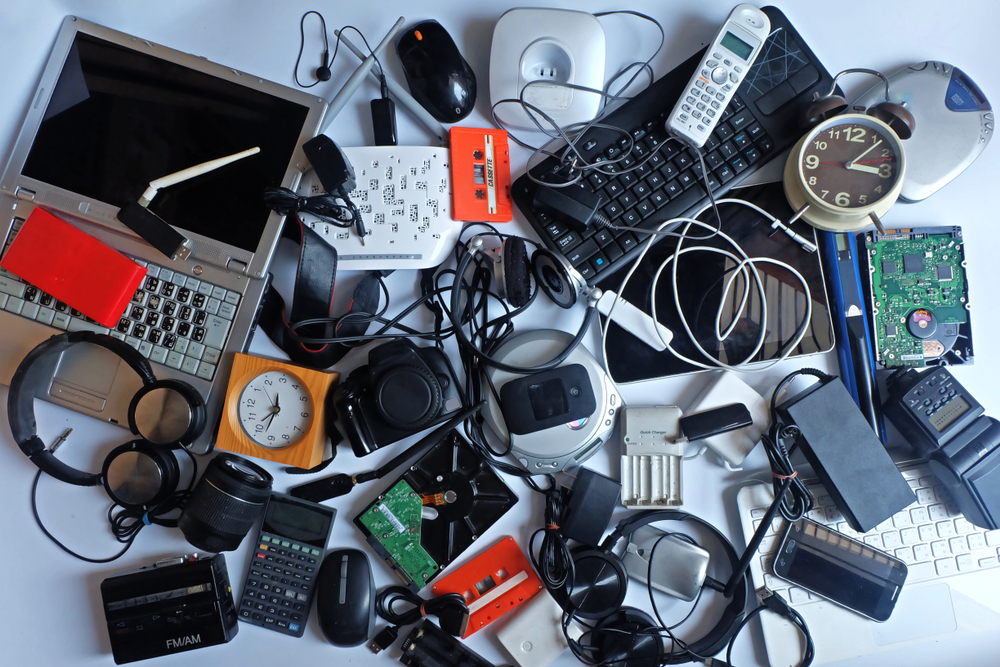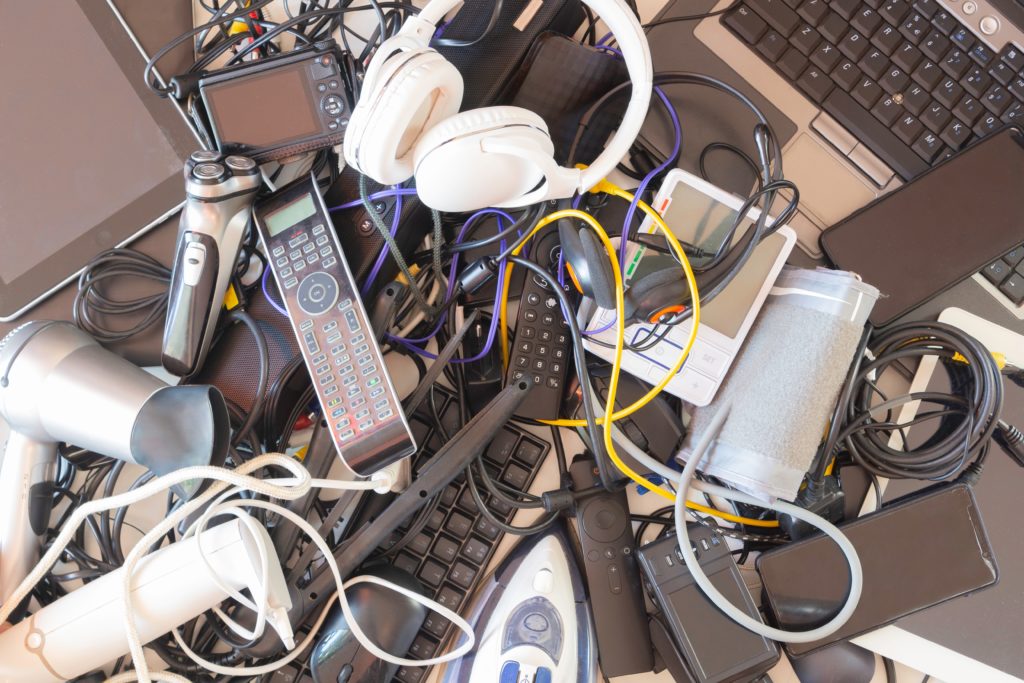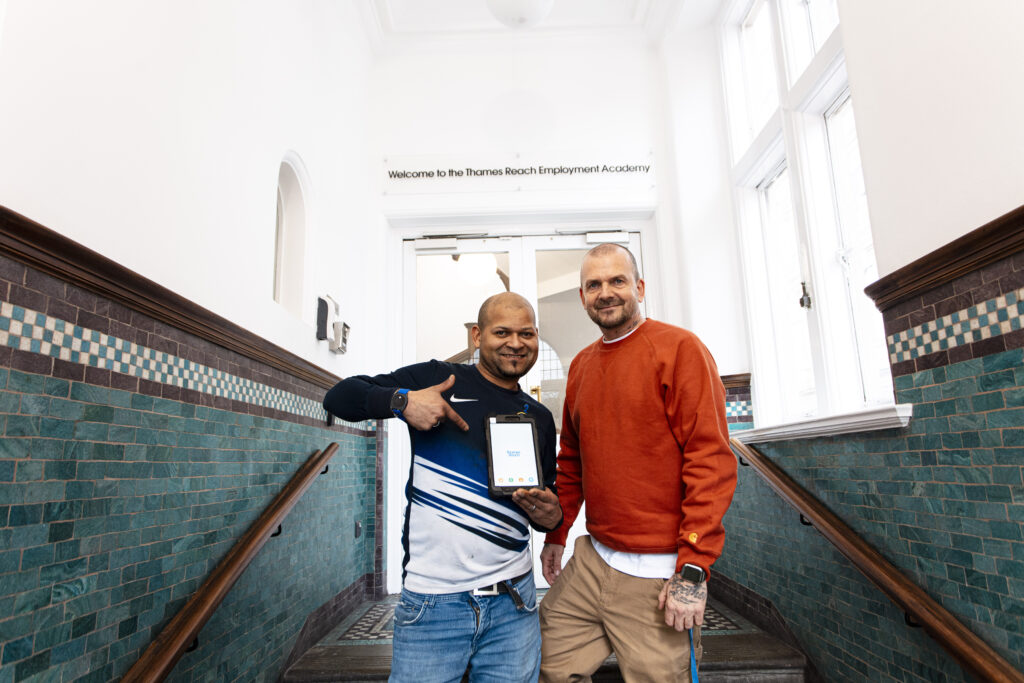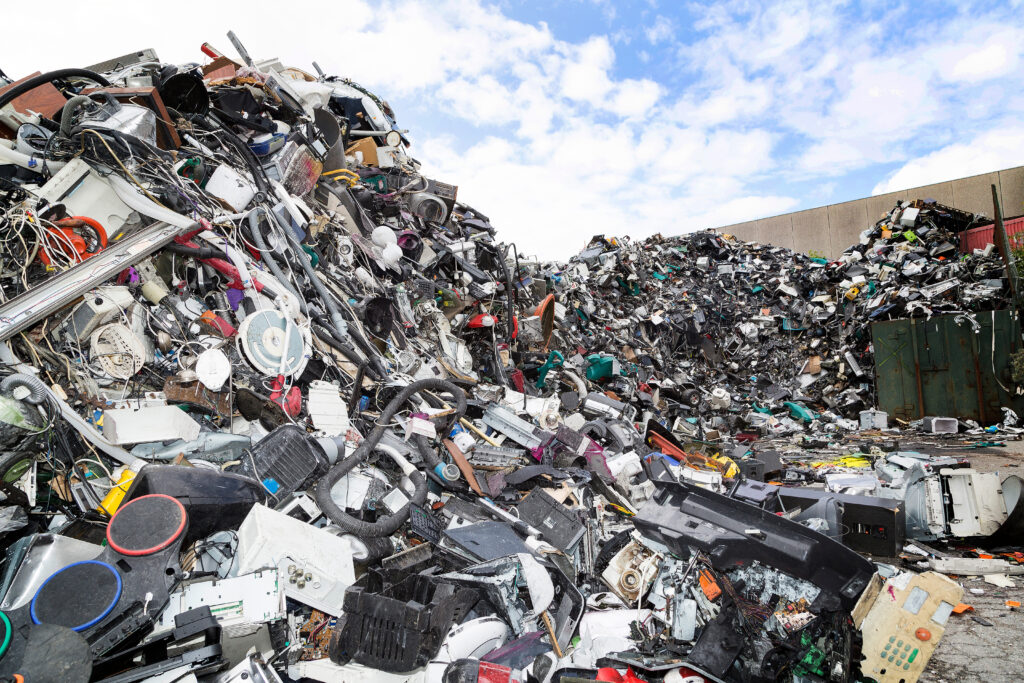The Society has used the study to highlight concern over the future availability of elements found in many electrical items, which include tin, gold, tungsten and tantalum – some of which are expected to run out in the next 100 years.

RSC commissioned an Ipsos MORI survey of 2,353 people, which found that 51% of UK households have at least one unused electronic device – including items such as mobile phones, computers, smart TVs, MP3 players or e-readers – and 45% have up to five.
Of these 82% have no plans to recycle or sell on their devices after they fall out of use, the survey suggested, with concerns over data security, or lack of knowledge over where items can be recycled among the barriers to recycling.
Recycling
Commenting on the study, Robert Parker, chief executive of the Royal Society of Chemistry, said: “Chemical scientists are already working to find ground-breaking solutions – by investigating long-term substitutes for rare elements in devices, or by finding new chemical methods to extract precious materials and reuse them – but we all can and must do more.
“As individuals, reuse and recycling are the best options available to us, but even if recycled it is still extremely difficult to recover some of these elements from unused devices.”
“As individuals, reuse and recycling are the best options available to us, but even if recycled it is still extremely difficult to recover some of these elements from unused devices.”
“We need action now – from governments, manufacturers and retailers – to make reuse and recycling much easier, and we must enable a new generation of chemistry talent to help. The UK has a tremendous opportunity to become a world leader in this and set an example for other nations to follow.”
RSC’s research comes as the UK’s WEEE sector also seeks to answer questions about the sources of available items for recycling, in light of failure to hit WEEE collection targets in consecutive years.
Money from the WEEE compliance fee fund is being used to pay for research aimed at identifying the extent to which activities such as repair, reuse, hoarding, theft and destruction mean that these products are not available to be recycled or that their appearance as ‘waste’ will be delayed.
This is in response to concerns over an increasing gap between electrical goods being placed onto the market, and corresponding tonnages of material being collected for recycling.
Response
Commenting on the research Mark Burrows-Smith, chief executive of the producer compliance scheme REPIC, said: “The RSC report further confirms the research reported by REPIC in our 2018 survey. Information and awareness are key to educating the public to understand the important role we all need to play in responsibly recycling our e-waste. Establishing new recycling habits to capture the many types of waste electrical and electronic products needs to be a priority.”
Mr Burrows-Smith pointed to the creation of the Urban Mine Platform (urbanmineplatform.eu) by 17 partners in the ProSUM (Prospecting Secondary raw materials in the Urban mine and Mining wastes) Project to present the flows of precious and base metals and critical raw materials in products in use and throughout their journey to end of life as a key tool in understanding sources of key secondary materials.
“Establishing new recycling habits to capture the many types of waste electrical and electronic products needs to be a priority.”
He added: “This Platform was designed as a useful tool to help European industries by providing a better picture of where waste sources are and, more importantly, giving a detailed breakdown of the valuable materials in the waste stream.
“We hope news about the findings from the RSC’s research will encourage more UK consumers to recycle any old gadgets currently stored in their homes, so that any valuable and critical raw materials they might contain can be captured for recycling.”
WEEE Conference
25 September, Lord’s Cricket Ground, London
Hear from expert speakers discussing issues facing the UK’s WEEE sector – including collection targets, regulation on POPs and treatment standards.
www.weeeconference.com











Subscribe for free